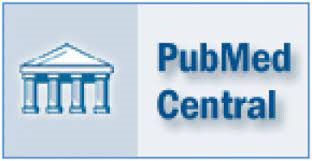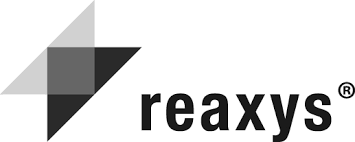Comprehensive Insights into Pediatric Craniopharyngioma: Endocrine and Metabolic Profiles, Treatment Challenges, and Long-term Outcomes with a Multicenter Approach
Zeynep Şıklar1, Elif Özsu1, Sirmen Kızılcan Çetin1, Samim Özen2, Filiz Çizmecioğlu-Jones3, Hanife Gül Balkı2, Zehra Aycan1, Damla Goksen2, Fatih Kilci3, Sema Nilay Abseyi1, Ummahan Tercan4, Gözde Gürpınar3, Şükran Poyrazoğlu4, Feyza Darendeliler4, Korcan Demir5, Özge Besci5, İlker Tolga Özgen6, Semra Bahar Akın6, Zümrüt Kocabey Sütçü7, Emel Hatun Aykaç Kaplan7, Emine Çamtosun8, İsmail Dundar8, Elif Sağsak9, Hüseyin Anıl Korkmaz10, et al1Ankara University Faculty of Medicine, Department of Pediatric Endocrinology, Ankara, Turkey2Ege University Faculty of Medicine, Department of Pediatric Endocrinology, Izmir, Turkey
3Kocaeli University Faculty of Medicine, Division of Pediatric Endocrinology, Kocaeli, Turkey
4Istanbul University Faculty of Medicine, Division of Pediatrics Endocrinology, Istanbul, Turkey
5Dokuz Eylül University Faculty of Medicine, Division of Pediatric Endocrinology, Izmir, Turkey
6Bezmialem Vakif University Faculty of Medicine, Division of Pediatric Endocrinology, Istanbul, Turkey
7Basaksehir Çam and Sakura City Hospital, Pediatric Endocrinology, Istanbul, Turkey
8İnönü University Faculty of Medicine, Department of Pediatric Endocrinology, Malatya, Turkey
9University of Yeditepe Faculty of Medicine, Division of Pediatric Endocrinology, Istanbul, Turkey
10Balıkesir Atatürk State Hospital, Division of Pediatric Endocrinology, Balıkesir, Turkey
11Aydın Adnan Menderes University Faculty of Medicine, Division of Pediatric Endocrinology, Aydın, Turkey
12Koç University Faculty of Medicine, Division of Pediatrics Endocrinology, Istanbul, Turkey
13Acibadem Atasehir Hospital, Division of Pediatric Endocrinology, Istanbul, Türkiye
14University of Health Sciences, Şişli Hamidiye Etfal Health Practices and Research Centre, Division of Pediatric Endocrinology, Istanbul, Turkey
15Necmettin Erbakan University Faculty of Medicine, Department of Pediatric Endocrinology, Konya, Turkey
16Eskisehir Osmangazi University Faculty of Medicine, Division of Pediatric Endocrinology, Eskisehir, Turkiye
INTRODUCTION: Craniopharyngiomas (CPG) have complex challenges in treatment due to their proximity to vital structures, surgical and radiotherapeutic complexities, and the tendency for recurrence. This study aims to identify the prevalence of endocrine and metabolic comorbidities observed during initial diagnosis and long-term follow-up in a nationwide cohort of pediatric CPG patients. The study also highlights the associated difficulties in their management.
METHODS: Sixteen centers entered 152 patients into the ÇEDD NET data system. We evaluated the clinical and laboratory characteristics at presentation, administered treatments, accompanying endocrine, metabolic, and other system involvements, and the patient's follow-up features.
RESULTS: Of the evaluated patients, 64 were female, and 88 were male. At presentation, the mean age was 9.1 ± 3.67 (min: 1.46-max: 16.92) years. The most common complaints at presentation were headache (68.4%), vision problems (42%), short stature (15%), nausea and vomiting (7%). The surgical procedure applied to the patients was gross total resection (GTR) in 97 cases (63.8%) and subtotal resection in 55 cases (36.2%). Radiotherapy was initiated in 11.8% of the patients. In the pathological examination, 92% of the cases were adamantinamatous type, 8% were papillary type. Postoperatively, hormone deficiencies consisted of thyroid-stimulating hormone (92.1%), adrenocorticotropic hormone (81%), antidiuretic hormone (79%), growth hormone (65.1%), and gonadotropin (43.4%) deficiencies. Recombinant growth hormone treatment (rhGH) was initiated on 27 patients. The study showed hesitancy among physicians regarding rhGH. The median survival without relapse was 2.2 years. Median time of relapse was 1.82 years (range: 0.13-10.35 years). Relapse was related to longer follow-ups and reduced GTR rates. The median follow-up time was 3.13 years. Among the last follow-up visits, the prevalence of obesity was 38%, but of these, 46.5% were already obese at diagnosis. However, 20% who were not obese at baseline became obese on follow-up. Permanent visual impairment was observed in 26 patients, neurological deficits in 13 patients, and diabetes mellitus in 5 patients.
DISCUSSION AND CONCLUSION: Recurrence was predominantly due to incomplete resection and the low rate of postoperative radiotherapy. It also emphasized challenges in multidisciplinary regular follow ups and suggested early interventions such as dietary restrictions and increased exercise to prevent obesity.
Corresponding Author: Sirmen Kızılcan Çetin, Türkiye
Manuscript Language: English



























